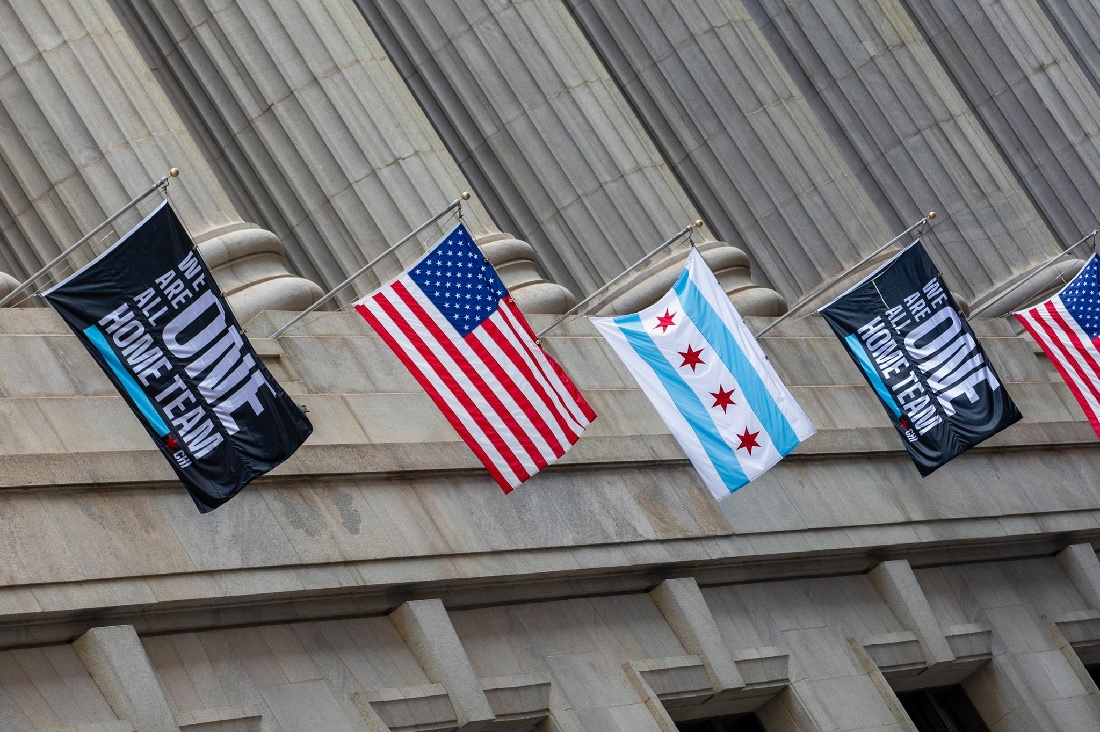
Critics call City’s failure to condemn religious discrimination, “failure of character.”
Chicago City Council has rejected a resolution expressing solidarity with Chicago’s South Asian community “regardless of religion and caste” amid what media reports called intense lobbying from local Indian organizations and the country’s consul general.
Alderman Maria Hadden’s proposal fell by a 26-18 vote in the Council Wednesday, in a rare instance of a tight roll call for a nonbinding resolution, the Chicago Tribune reported.
Mayor Lori Lightfoot said at a news conference following the City Council meeting that she won’t “pretend to be an expert” on India and noted many aldermen felt insufficiently informed about what’s happening there.”
Asked about Indian Prime Minister Narendra Modi’s conduct in office, she said, “What I say sitting here as mayor of Chicago is I’m not going to get ahead of the Biden administration.”
Hadden’s resolution sparked rigorous debate within the city’s South Asian community after she introduced it in the City Council last summer, according to the Tribune.
During an unusually long and intense council debate for a symbolic measure, some aldermen said they had received thousands of messages from both sides in recent months, most urging them to vote against it, it said.
The resolution was meant to condemn violence against certain castes and religious minorities in India and to hold a fellow democracy accountable, Hadden was quoted as saying.
“That’s really the spirit of why we should be connecting to similar issues in our sister countries,” she said.
But its opponents say the proposal needlessly sows division within Chicago’s Indian American community, according to the Tribune.
Some Chicago area Indian Americans who have been calling into meetings, the newspaper said, were concerned about terrorism in Jammu and Kashmir, and some were concerned about “Hindu-phobia” in Chicago.
Supporters of the resolution, meanwhile, wanted the City Council to approve it as a symbol of solidarity “with Chicago’s South Asian community regardless of religion and caste,” it said.
The resolution also called on “the congressional delegation and new federal administration to support legislation and other action promoting secularism and tolerance in India.”
Hadden, who said she originally planned to pass it around India’s Independence Day last August, attributed much of the delay on the office of the Consul General of India in Chicago, which opposed the resolution, according to the Tribune.
Hadden’s resolution failed despite having been scaled back to remove specific language that sought to compare Modi to former President Donald Trump, the Tribune said.
The resolution also no longer made mention of mob lynchings of Muslims and other minorities, or quotes by a high-ranking official comparing undocumented people in India to termites, among other things, it noted.
About 30 people gathered in front of Hadden’s office in Rogers Park on Monday morning to protest the resolution, the Tribune reported.
Flyers referring to Hadden as “Maria Hateman” criticized her for sowing division among Indians in Chicago, and speakers called on her to create a resolution against “terrorist countries” instead.
“We Indians here, Hindus, Muslims, Sikh, Christian, we are all united here,” Sohan Joshi, a protest organizer was quoted as saying. “Our children are living in harmony here. Why does (Hadden) have to bring a resolution that says we are not united?”
Amitabh Mittal, general secretary of the World Hindu Council of America, who opposed the resolution, said before the vote, “This has nothing to do with America, but it creates a very derogatory image for future Indian generations.”
Commenting on the rejection of the watered down resolution by the Council, Neil Steinberg called it “moral failure.”
“Craven collapse when the moment calls for courage is a council specialty, their go-to move,” he wrote in an opinion piece in the Chicago Sun Times.
Like Trump, “Modi stokes ethnic hatreds to keep his power base whipped up,” he wrote noting, “The Chicago City Council considered speaking out against that strongly, then pulled back.”
“After endlessly debating the non-binding resolution against religious hatred in India, holding meetings for months, making changes, trying to appease the Indian consulate here, the watered-down version was rejected,” Steinberg noted.
“The City Council resolution denouncing discrimination in India should be a no-brainer,” wrote Rummana Hussain, an assistant metro editor at the Chicago Sun-Times, in an opinion piece on March 17.
“But the resolution has been gutted so as to appease the Consulate of India in Chicago and other defenders of India’s right-wing nationalist prime minister and his reactionary political party,” she said of the watered down resolution.
“In the Chicago City Council over the last several months, approval of a resolution denouncing the BJP’s anti-Muslim zealotry and reactionary policies should have been a slam dunk,” Hussain wrote noting, “We are a town that prides itself on being a “welcoming city” — a sanctuary — for all.”
“But the resolution has been passed around like a hot potato and gutted in negotiations so as to appease the Consulate of India in Chicago and other defenders of Modi and the BJP,” she suggested.
The City Council’s vote “on the dramatically watered-down resolution,” Hussain wrote, “will represent a failure of character.”
The rejected resolution, she then noted, “mostly just urges India to condemn religiously motivated violence and prosecute those who attack protesters and journalists.”
“It requests that India restore the rights of people living in Muslim-majority Kashmir,” Hussain noted.
“And it expresses disappointment in India’s creation of a National Register of Citizens, which excludes nearly 2 million Muslims in Assam from citizenship, and passage of the Citizen Amendment Act.”
READ MORE:
Anti-CAA events planned across US on Indian Republic Day (January 24, 2020)
Indian Americans stage more protests against CAA in front of Embassy of India (December 29, 2019)
USCIRF says India is among worst violators of religious freedom (April 28, 2020)



